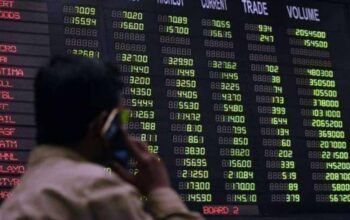By Staff Reporter
ISLAMABAD: Pakistani lawmakers on Tuesday struck down the government’s plan to slap an 18% sales tax on solar panel imports, arguing it would stifle renewable energy growth and heap more pressure on businesses already squeezed by rising energy costs.
The move by the National Assembly and Senate Standing Committees on Finance and Revenue comes a week after Finance Minister Muhammad Aurangzeb unveiled the fiscal 2025-26 budget, which targeted solar imports alongside online businesses and digital marketplaces for fresh revenue.
Committees of both the houses shot down the tax, warning it could derail Pakistan’s clean energy ambitions and hit struggling companies.It also sets the stage for a broader showdown over the Finance Bill 2025, which seeks to arm tax officials with arrest powers that lawmakers warn could spark chaos in the private sector.
In the National Assembly panel’s session, Federal Board of Revenue (FBR) Chairman Rashid Mahmood Langrial sought to clarify the proposal. “There is no tax on solar panels which are imported as complete products. If parts of solar panels are imported and manufactured here, there is a tax on it,” he said.
Langrial said solar panel prices have fallen over time, noting, “Solar panels used to be very expensive, but now they have become quite cheap.”
That argument failed to sway lawmakers. Committee Chairman Syed Naveed Qamar pointed to unified opposition. “All political parties opposed the tax on solar [panels] in the House. There are other ways of collecting money and our position regarding tax on solar panels is clear.”
Mohammad Mobeen, another committee member, flagged a market reaction to the budget announcement. “Check the market to see how much solar prices have increased within two weeks.” He called the tax “unbearable for the poor.”
Lawmaker Shahram Tarakai pressed for relief on technology imports. “If technology is to be brought into the country, the government should provide relief to the people,” especially given the elevated costs businesses already face. MNA Shahida Akhtar Ali pitched an alternative. “Solar is a source of alternative energy. A tax should be imposed on sugary drinks, while tax relief should be given on solar panels.”
Langrial countered that the 18% sales tax would rake in Rs20 billion for the treasury. He cited import data showing 32,000 megawatts (MW) of solar power brought into Pakistan over the past five years, with 6,271 MW tied to net metering, 6,506 MW used in non-net metering setups, and 5,521 MW deployed off-grid. Another 13,000 MW remained uninstalled.
FBR chairman also alleged over-invoicing in solar imports, a concern echoed in the Senate committee.
The Senate panel, in its fifth session, doubled down on the rejection. A press release quoted its chairman slamming the tax as “discriminatory” and demanding its “immediate withdrawal.” Members noted that some stakeholders had preemptively imported and dumped solar equipment ahead of the budget, anticipating the hike.
Copyright © 2021 Independent Pakistan | All rights reserved




